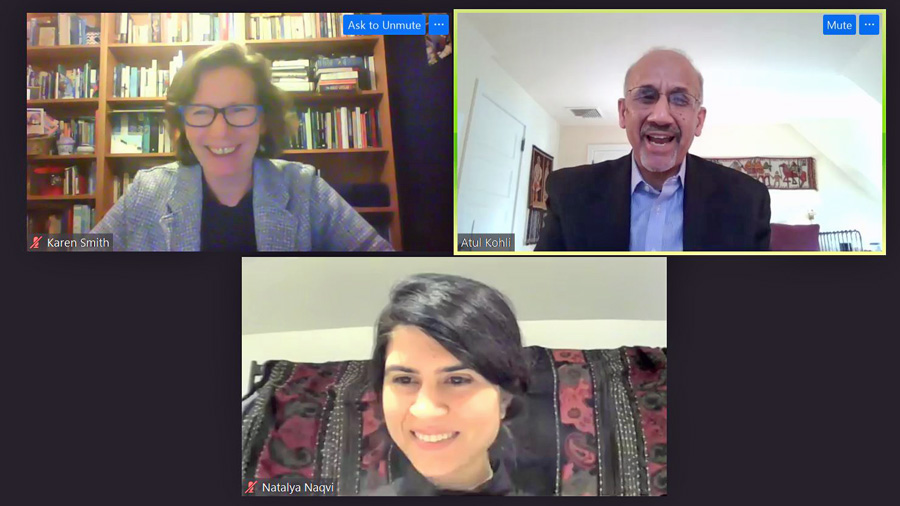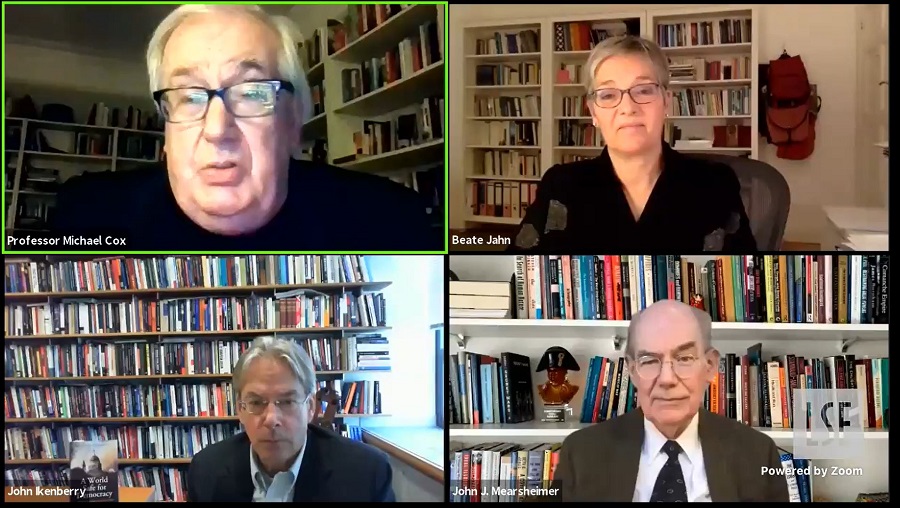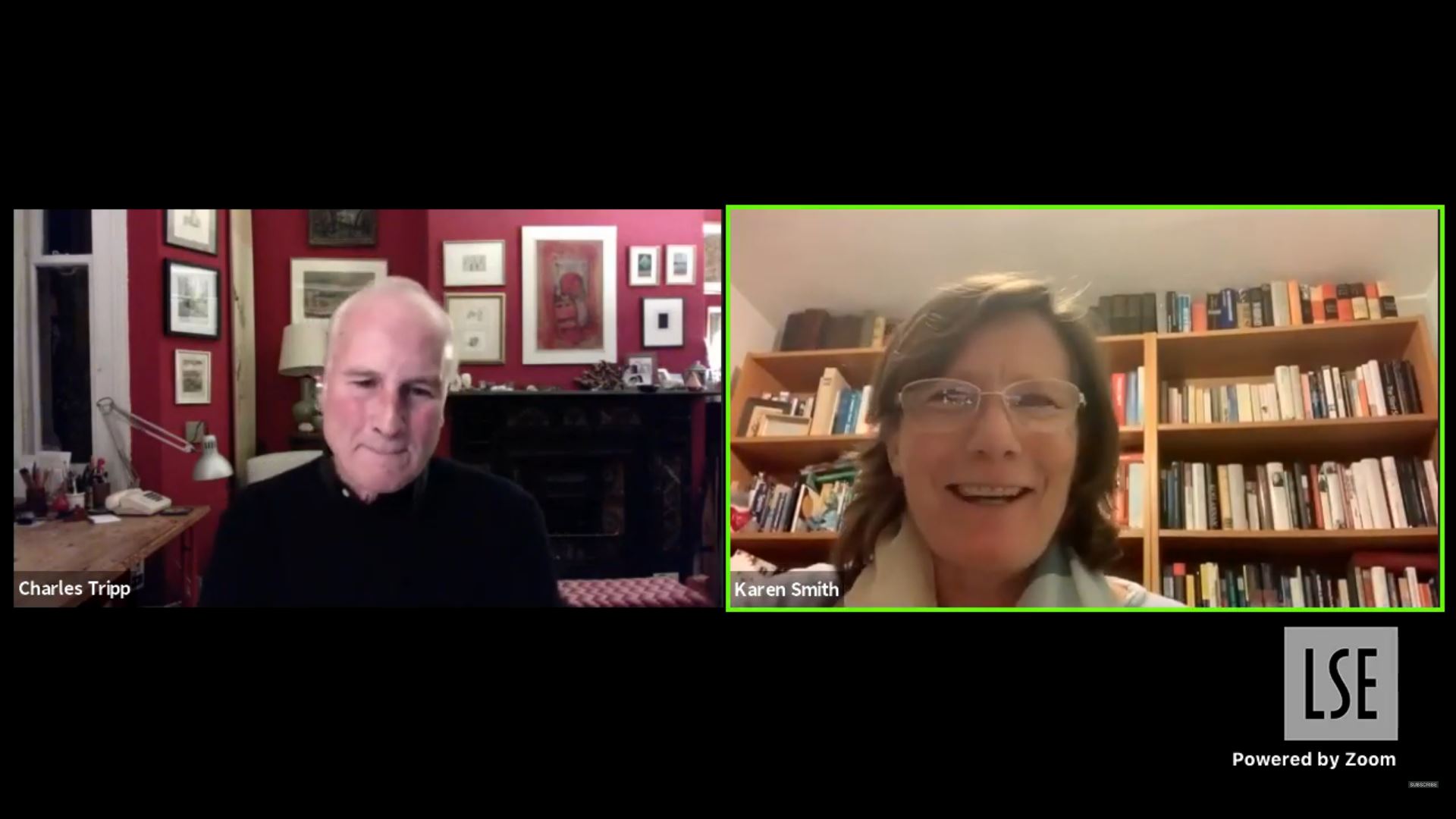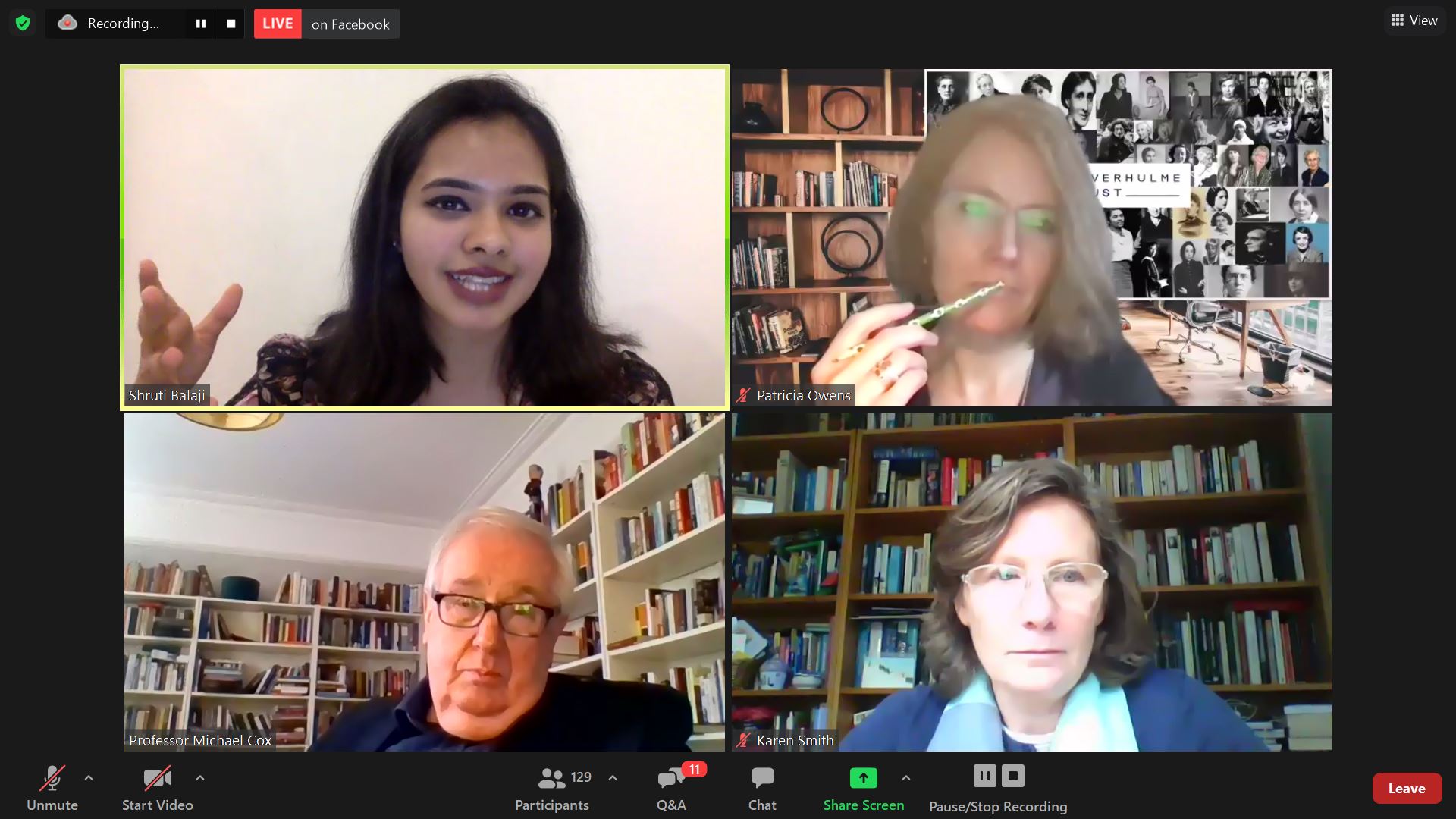On Thursday 28 October 2021, Dr Benjamin Ho, Dr Beverley Loke and Professor Joseph Chinyong Liow came together with Professor William A. Callahan to explore how China is currently engaged in a competition with the United States to demonstrate its superiority over the latter.
- Find out more about the event and speakers
- Listen to or download the audio podcast (90 mins)
- Watch on YouTube (90 mins)
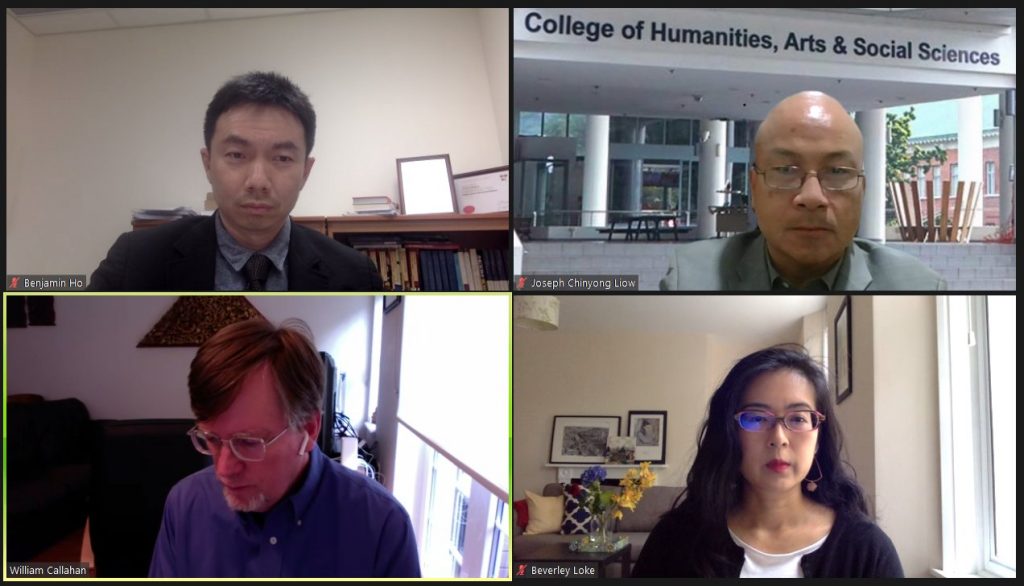
On 28 October, LSE Department of International Relations hosted an online event to discuss LSE IR department alumnus Dr Benjamin Ho’s new book China’s Political Worldview and Chinese Exceptionalism. In addition to Dr Ho’s introduction of the key ideas of the book, experts Professor Joseph Chinyong Liow from the Nanyang Technological University of Singapore and Dr Beverley Loke from the University of Exeter offered their insights. The event was chaired by LSE’s Professor of International Relations, William A. Callahan.
The discussion analysed the ways in which exceptionalism is a useful framework to explain China’s actions on the global stage. The speakers argued that China’s belief in its exceptionalism has important international and domestic implications.
Chinese Exceptionalism is a belief that China is inherently different from other nations. China distinguishes itself from the United States and the West, based on its ‘superior’ political system, values, and its unbroken historical links to its ancient past. According to Dr Benjamin Ho, Chinese exceptionalism is not a game of bluff and ought to be taken seriously, as China’s leaders sincerely believe in it.
China promotes its exceptionality to foster a favourable image abroad. Dr Joseph Chinyong Liow pointed out how China juxtaposes itself to the West. It criticises the West for trying to impose Pax Americana on other states, and for exporting its ideology. Moreover, China portrays itself as a past victim of Western imperialism, and promises not to impose its political views on other states. Thus, Chinese Exceptionalism can increase the appeal of China for states in the Global South by promising “win-win cooperation” and mutual benefits.
Dr Beverley Loke argued that Chinese Exceptionalism has three important functions in China’s domestic politics. First, it promotes Chineseness as a unique identity. Second, it unites the domestic public by deflecting blame on external forces. Third, it projects the goodness of the Chinese Communist Party and the states which are its allies. Exceptionalism as a narrative domestically increases the support for the Party agenda, making the rule of CCP stronger.
Chinese Exceptionalism appears to be the key promoter of Chinese image abroad and an important way to reinforce domestic cohesiveness. Dr Ho’s book raised important and thought-provoking questions about China’s international decision-making which led to an insightful discussion.
Event report by Anniki Mikelsaar, LSE General Course exchange student from Sciences Po Paris, Europe-Asia campus. Her research interests include Chinese foreign policy and the China-West relations.



